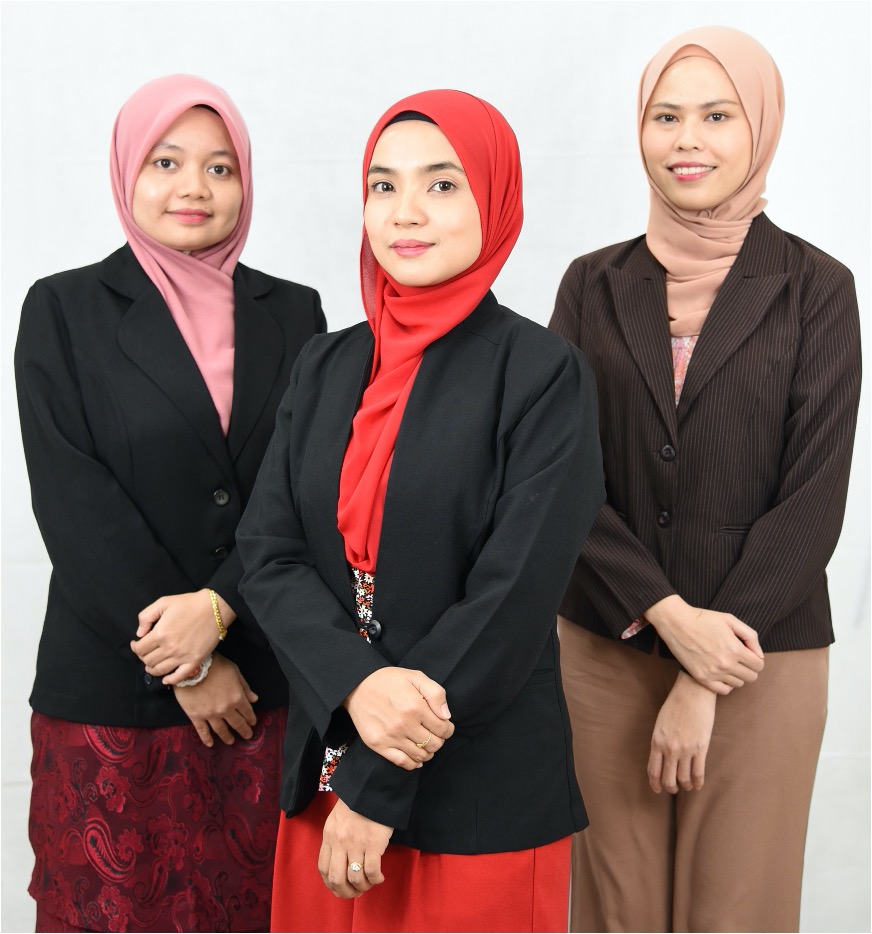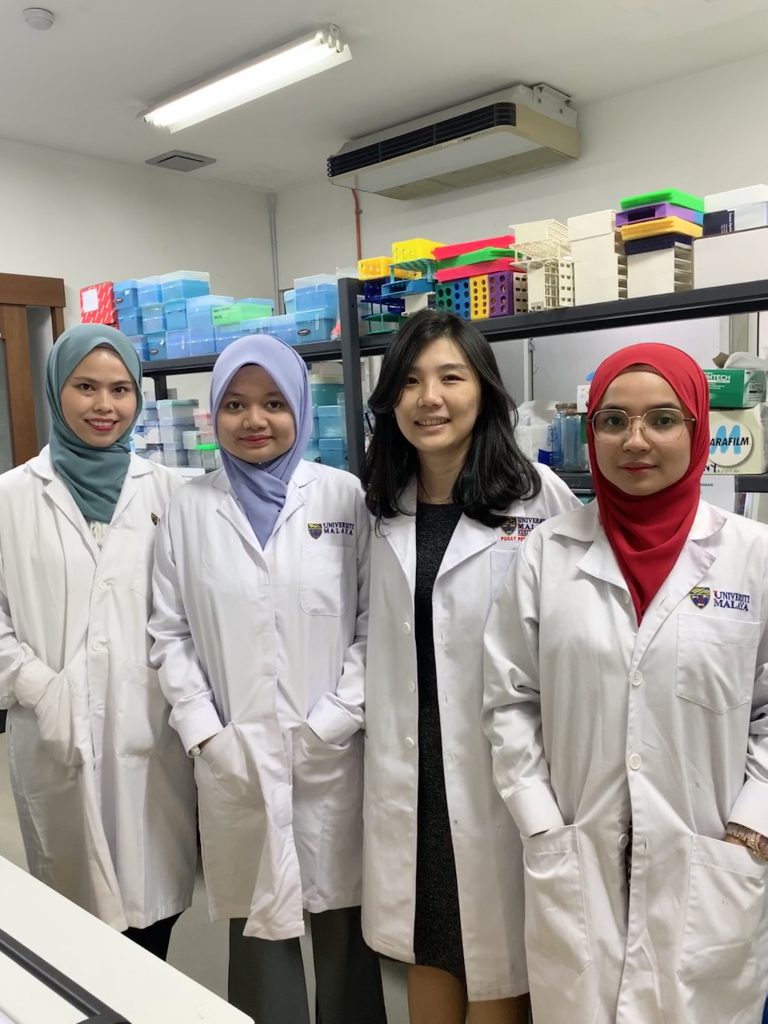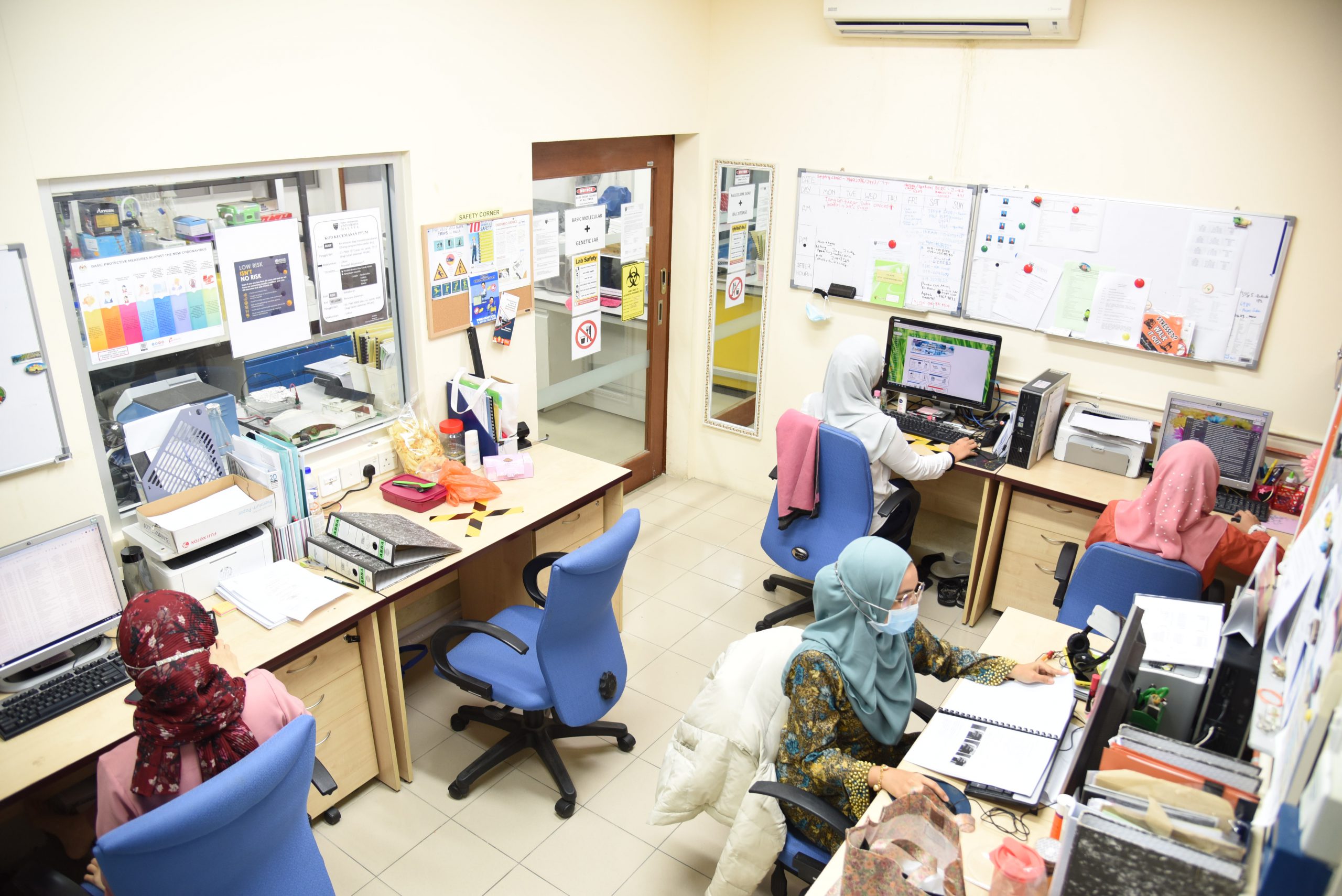SURGICAL RESEARCH Laboratory
DEPARTMENT OF SURGERY
FACULTY OF MEDICINE
University of Malaya
WHO WE ARE
The Surgical Research Laboratory serves as an interface between clinical surgery and basic research, bridging the gap from bench to bedside. It provides research facilities for molecular biology, cell culture, histological staining and sample storage. The Surgical Research Laboratory has 3 full-time staff members dedicated to training, maintaining the equipment, and providing services. We are committed to our role in driving and supporting clinical and molecular research under the Department of Surgery.
Organization Chart
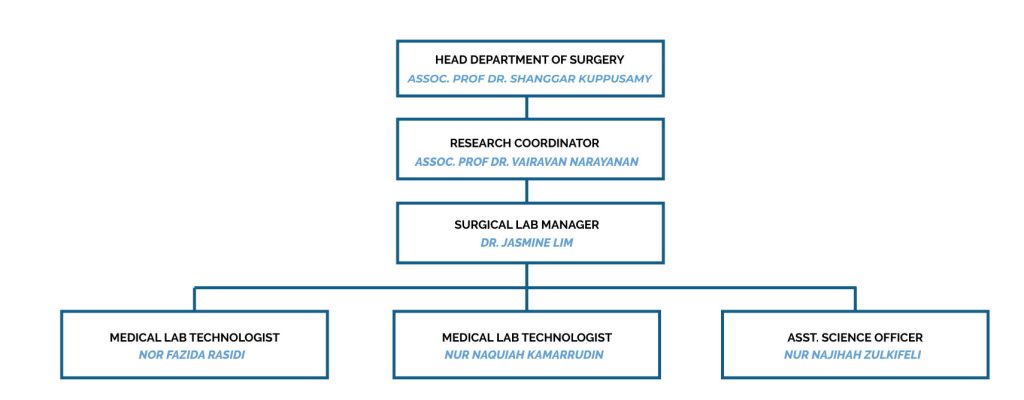
- Current Research Projects
- Former Research Projects
- Research Facilities
Current Research 2022

Adipokines as potential prognostic biomarkers and therapeutic target in renal cell carcinoma (RCC)
Determination certain adipokines could play a significant role in RCC development and progression. The potential findings will help understand the link between obesity,adipolaries and RCC. In addition the molecular behavior of RCC in term of drug resistance, proliferation, apoptosis and evasiveness and may hold promise and potential diagnostic or prognostic markers to patients management and monitoring for this disease

UM Breast Lymphoma Project (Pink Lily): Biobanking, Registry Biomarkers for Multiracial population
The most common type of breast cancer that arises from epithelial elements are categorized as carcinomas with the most common type such as invasive carcinoma. The need of starting primary breast lymphoma tissue banking and registry is a novel move for this group of disease that is still not well studied in the East Region. This study aims to set biobanking of lymphoma tumour tissues and blood (plasma) under UM Biobank unit. Also, the study aims to investigate differentially expressed IncRNAs in incidence of breast lymphoma to enhance our understanding of the gene regulation mechanism of this disease based on the transcriptome data of PBL biopsy samples. Besides that, this study is to identify suitable IncRNAs as biomarkers for breast lymphoma for a more rapid diagnosis and delivery of therapy.

Prostate Cancer Biobanking
Prostate cancer is the 4th most common male cancer accounting for 5.7% of cancer cases among men in Malaysia with approximately 60% of prostate cancer being diagnosed at Stage III and IV. Therefore, it is essential to establish a prostate cancer biobanking cohort to support epidemiology, prevention and treatment of prostate cancer in Malaysia. The urology unit has started the prostate cancer biobanking since 2013, including blood, urine and associated clinical data from prostate cancer patients. We have been actively involved in national and international prostate cancer consortium studies to improve the management of prostate cancer.

Investigation on the role of oxidative imbalance and molecular alterations in the transformation of benign to malignant thyroid tumors
Numerous studies comparing the molecular alterations and oxidative stress biomarkers between papillary thyroid cancer (PTC) and benign thyroid goitre (BTG) were performed to unravel the potential underlying mechanisms of PTC progression.Objective of study is to identify the different ,olecular alterations the benign lesion and PTC lesion

Characterisation of genomic and immune profiles breast cancers arising in BRCA1 and BRCA2 carries
The objective this study is to evaluate the associations between molecular and immunogenic featues in tumors from BRCA1 or BRCA2 carries and therapeutic response and survival. Perform immune-histochemical staining of the tumor microarrays (TMAs) for immune and cell type markers including CD3, CD8, CD20, CD45, CD68, FoxP3, PRF1 and PDL1.

An investigation on the effects of hypoxia-mimicking agents in the cancer progression and oxidayive stress of hepatocellular carcinoma
Adaptive response of tumor cell to low oxygen conditions is primarily driven by thehypoxia-inducible factor (HIF) transcription factors. The effect of HIF acivation vary between tumor types, leading to either positive or negative outcomes. It remains unclear whether high levels of HIF favours or hinder hepatocellular caarcinoma tumour progression. With the use of hypoxia-mimicking agents HMAs) of different selectivity, we investigate the effects of target HIF pathway activation in liver cancer cells, by looking into the aspects of cell proliferation, cell migration and oxidative stress.

Investigation of the mechanism of action of a selected quinazoline compound againts lung cancer cell lines
To identify the most potent and selected compound from a series of quinazoline compounds agains NSCL cell lines. Determine the apoptotic events and cell cycle status of the selected quinazoline compound in both mutated and wild type EGFR NSCLC cell lines. Focusing on the PI3K-AKT pathways.

Screening of Novel Small Molecules for Parkinson's Disease-Associated Leucine-Rich Repeat Kinase 2 (LRRK2) and its Variant
Parkinson's disease (PD) is aneurodegenerative disease that not only affects the system, but also the non0-motor symptoms. The G2019S mutation in the leecine-rich repata kinase 2(LRRK2) gene is one of the most common mutated genes linked to PD. This mutation leads to an increase in LRRK2 kinase activity. The increase LRRK2 activity results in phosphorylation ofmitsnsubstrate Rab10 at Thr73. Targeting inhibiyion of phosphorylated LRRK2 and Rab10 makes a great therapeutic strategy in treating PD as the current therapy available can only control the symptoms of the sisease.

Immunohistochemical staining to identify predictive biomarker among breast cancer patients
Performing IHC staining using autostainer Dako, Agilent
Current Research 2021

Molecular Profiling and Pathway Analysis of Clinically Aggressive Renal Cell Carcinoma (RCC)
Determination of the genes and pathways involved in the aggressive behaviour of high-grade and sarcomatoid RCC compared to low-grade RCC. It is also to investigate the protein expression of related genes that lead to poor prognosis of patients with RCC.

Glycocalyx Level in Patients Undergoing Pancreatectomy with Human Albumin 5% vs Gelofusine
The research is to determine association of glycocalyx by measuring level syndecan-1 and heparan sulfate with type colloid given human albumin 5% vs gelofusine in pancreatectomy.

A Multi-national Cohort Study on Impact of Intra-tumoral Genomic Heterogeneity & the Immune Micro-environment on the Clinical Trajectory of resected hepatocellular carcinoma
Hepatocellular carcinoma (HCC) is the 6th most common cancer in the cancer but 2nd most important cause of cancer death. Because of its highly heterogeneous nature, the current approach is to identify druggable targets that have not delivered efficacious systemic therapy in HCC is a main reason for the high case fatalities. This study aims to investigate the genomic heterogeneity immunological profile of surgically resected HCC, and relate them to subsequent clinical trajectory.

Prostate Cancer Biobanking
Prostate cancer is the 4th most common male cancer accounting for 5.7% of cancer cases among men in Malaysia with approximately 60% of prostate cancer being diagnosed at Stage III and IV. Therefore, it is essential to establish a prostate cancer biobanking cohort to support epidemiology, prevention and treatment of prostate cancer in Malaysia. The urology unit has started the prostate cancer biobanking since 2013, including blood, urine and associated clinical data from prostate cancer patients. We have been actively involved in national and international prostate cancer consortium studies to improve the management of prostate cancer.

Unravelling the Secret behind the Links between Obesity, Sarcopaenia and Falls in Older Person
Developing and identifying the methods to define obesity to improve the detection of older adults who are obese by body composition. This study aims to identify methods of evaluating adiposity and sarcopenia in older adults. Also this study is to establish the mechanism by which obesity may be linked to sarcopenia and to determine the underlying factors that may influence the risk of falls in older people with excessive body fat.

UM Breast Lymphoma Project (Pink Lily): Biobanking, Registry Biomarkers for Multiracial population
The most common type of breast cancer that arises from epithelial elements are categorized as carcinomas with the most common type such as invasive carcinoma. The need of starting primary breast lymphoma tissue banking and registry is a novel move for this group of disease that is still not well studied in the East Region. This study aims to set biobanking of lymphoma tumour tissues and blood (plasma) under UM Biobank unit. Also, the study aims to investigate differentially expressed IncRNAs in incidence of breast lymphoma to enhance our understanding of the gene regulation mechanism of this disease based on the transcriptome data of PBL biopsy samples. Besides that, this study is to identify suitable IncRNAs as biomarkers for breast lymphoma for a more rapid diagnosis and delivery of therapy.

peri-operative optimization of tumor-related epilepsy
To identify the molecular genetic changes associated with seizure occurrence among those with brain tumor and determine associated with favourable post operativeseizure control.
Current Research 2020

Molecular Profiling and Pathway Analysis of Clinically Aggressive Renal Cell Carcinoma (RCC)
Determination of the genes and pathways involved in the aggressive behaviour of high-grade and sarcomatoid RCC compared to low-grade RCC. It is also to investigate the protein expression of related genes that lead to poor prognosis of patients with RCC.

Glycocalyx Level in Patients Undergoing Pancreatectomy with Human Albumin 5% vs Gelofusine
The research is to determine association of glycocalyx by measuring level syndecan-1 and heparan sulfate with type colloid given human albumin 5% vs gelofusine in pancreatectomy.

A Multi-national Cohort Study on Impact of Intra-tumoral Genomic Heterogeneity & the Immune Micro-environment on the Clinical Trajectory of resected hepatocellular carcinoma
Hepatocellular carcinoma (HCC) is the 6th most common cancer in the cancer but 2nd most important cause of cancer death. Because of its highly heterogeneous nature, the current approach is to identify druggable targets that have not delivered efficacious systemic therapy in HCC is a main reason for the high case fatalities. This study aims to investigate the genomic heterogeneity immunological profile of surgically resected HCC, and relate them to subsequent clinical trajectory.

Prostate Cancer Biobanking
Prostate cancer is the 4th most common male cancer accounting for 5.7% of cancer cases among men in Malaysia with approximately 60% of prostate cancer being diagnosed at Stage III and IV. Therefore, it is essential to establish a prostate cancer biobanking cohort to support epidemiology, prevention and treatment of prostate cancer in Malaysia. The urology unit has started the prostate cancer biobanking since 2013, including blood, urine and associated clinical data from prostate cancer patients. We have been actively involved in national and international prostate cancer consortium studies to improve the management of prostate cancer.

Unravelling the Secret behind the Links between Obesity, Sarcopaenia and Falls in Older Person
Developing and identifying the methods to define obesity to improve the detection of older adults who are obese by body composition. This study aims to identify methods of evaluating adiposity and sarcopenia in older adults. Also this study is to establish the mechanism by which obesity may be linked to sarcopenia and to determine the underlying factors that may influence the risk of falls in older people with excessive body fat.

UM Breast Lymphoma Project (Pink Lily): Biobanking, Registry Biomarkers for Multiracial population
The most common type of breast cancer that arises from epithelial elements are categorized as carcinomas with the most common type such as invasive carcinoma. The need of starting primary breast lymphoma tissue banking and registry is a novel move for this group of disease that is still not well studied in the East Region. This study aims to set biobanking of lymphoma tumour tissues and blood (plasma) under UM Biobank unit. Also, the study aims to investigate differentially expressed IncRNAs in incidence of breast lymphoma to enhance our understanding of the gene regulation mechanism of this disease based on the transcriptome data of PBL biopsy samples. Besides that, this study is to identify suitable IncRNAs as biomarkers for breast lymphoma for a more rapid diagnosis and delivery of therapy.
Current Research 2021

Molecular Profiling and Pathway Analysis of Clinically Aggressive Renal Cell Carcinoma (RCC)
Determination of the genes and pathways involved in the aggressive behaviour of high-grade and sarcomatoid RCC compared to low-grade RCC. It is also to investigate the protein expression of related genes that lead to poor prognosis of patients with RCC.

Glycocalyx Level in Patients Undergoing Pancreatectomy with Human Albumin 5% vs Gelofusine
The research is to determine association of glycocalyx by measuring level syndecan-1 and heparan sulfate with type colloid given human albumin 5% vs gelofusine in pancreatectomy.

A Multi-national Cohort Study on Impact of Intra-tumoral Genomic Heterogeneity & the Immune Micro-environment on the Clinical Trajectory of resected hepatocellular carcinoma
Hepatocellular carcinoma (HCC) is the 6th most common cancer in the cancer but 2nd most important cause of cancer death. Because of its highly heterogeneous nature, the current approach is to identify druggable targets that have not delivered efficacious systemic therapy in HCC is a main reason for the high case fatalities. This study aims to investigate the genomic heterogeneity immunological profile of surgically resected HCC, and relate them to subsequent clinical trajectory.

Prostate Cancer Biobanking
Prostate cancer is the 4th most common male cancer accounting for 5.7% of cancer cases among men in Malaysia with approximately 60% of prostate cancer being diagnosed at Stage III and IV. Therefore, it is essential to establish a prostate cancer biobanking cohort to support epidemiology, prevention and treatment of prostate cancer in Malaysia. The urology unit has started the prostate cancer biobanking since 2013, including blood, urine and associated clinical data from prostate cancer patients. We have been actively involved in national and international prostate cancer consortium studies to improve the management of prostate cancer.

Unravelling the Secret behind the Links between Obesity, Sarcopaenia and Falls in Older Person
Developing and identifying the methods to define obesity to improve the detection of older adults who are obese by body composition. This study aims to identify methods of evaluating adiposity and sarcopenia in older adults. Also this study is to establish the mechanism by which obesity may be linked to sarcopenia and to determine the underlying factors that may influence the risk of falls in older people with excessive body fat.

UM Breast Lymphoma Project (Pink Lily): Biobanking, Registry Biomarkers for Multiracial population
The most common type of breast cancer that arises from epithelial elements are categorized as carcinomas with the most common type such as invasive carcinoma. The need of starting primary breast lymphoma tissue banking and registry is a novel move for this group of disease that is still not well studied in the East Region. This study aims to set biobanking of lymphoma tumour tissues and blood (plasma) under UM Biobank unit. Also, the study aims to investigate differentially expressed IncRNAs in incidence of breast lymphoma to enhance our understanding of the gene regulation mechanism of this disease based on the transcriptome data of PBL biopsy samples. Besides that, this study is to identify suitable IncRNAs as biomarkers for breast lymphoma for a more rapid diagnosis and delivery of therapy.

peri-operative optimization of tumor-related epilepsy
To identify the molecular genetic changes associated with seizure occurrence among those with brain tumor and determine associated with favourable post operativeseizure control.
Current Research 2020

Molecular Profiling and Pathway Analysis of Clinically Aggressive Renal Cell Carcinoma (RCC)
Determination of the genes and pathways involved in the aggressive behaviour of high-grade and sarcomatoid RCC compared to low-grade RCC. It is also to investigate the protein expression of related genes that lead to poor prognosis of patients with RCC.

Glycocalyx Level in Patients Undergoing Pancreatectomy with Human Albumin 5% vs Gelofusine
The research is to determine association of glycocalyx by measuring level syndecan-1 and heparan sulfate with type colloid given human albumin 5% vs gelofusine in pancreatectomy.

A Multi-national Cohort Study on Impact of Intra-tumoral Genomic Heterogeneity & the Immune Micro-environment on the Clinical Trajectory of resected hepatocellular carcinoma
Hepatocellular carcinoma (HCC) is the 6th most common cancer in the cancer but 2nd most important cause of cancer death. Because of its highly heterogeneous nature, the current approach is to identify druggable targets that have not delivered efficacious systemic therapy in HCC is a main reason for the high case fatalities. This study aims to investigate the genomic heterogeneity immunological profile of surgically resected HCC, and relate them to subsequent clinical trajectory.

Prostate Cancer Biobanking
Prostate cancer is the 4th most common male cancer accounting for 5.7% of cancer cases among men in Malaysia with approximately 60% of prostate cancer being diagnosed at Stage III and IV. Therefore, it is essential to establish a prostate cancer biobanking cohort to support epidemiology, prevention and treatment of prostate cancer in Malaysia. The urology unit has started the prostate cancer biobanking since 2013, including blood, urine and associated clinical data from prostate cancer patients. We have been actively involved in national and international prostate cancer consortium studies to improve the management of prostate cancer.

Unravelling the Secret behind the Links between Obesity, Sarcopaenia and Falls in Older Person
Developing and identifying the methods to define obesity to improve the detection of older adults who are obese by body composition. This study aims to identify methods of evaluating adiposity and sarcopenia in older adults. Also this study is to establish the mechanism by which obesity may be linked to sarcopenia and to determine the underlying factors that may influence the risk of falls in older people with excessive body fat.

UM Breast Lymphoma Project (Pink Lily): Biobanking, Registry Biomarkers for Multiracial population
The most common type of breast cancer that arises from epithelial elements are categorized as carcinomas with the most common type such as invasive carcinoma. The need of starting primary breast lymphoma tissue banking and registry is a novel move for this group of disease that is still not well studied in the East Region. This study aims to set biobanking of lymphoma tumour tissues and blood (plasma) under UM Biobank unit. Also, the study aims to investigate differentially expressed IncRNAs in incidence of breast lymphoma to enhance our understanding of the gene regulation mechanism of this disease based on the transcriptome data of PBL biopsy samples. Besides that, this study is to identify suitable IncRNAs as biomarkers for breast lymphoma for a more rapid diagnosis and delivery of therapy.
2022
2021
2020
2019
2018
2017
2016
2015
2014
2013
2012
2011
2022
| UM breast Lymphoma Project (Pink Lily): Biobanking registry and biomarkers for multiracial population: Prospective Cohort Study | 2019-2021 | Prof Dr See Mee Hoong |
| Investigation of the mechanism of action of a selected quinazoline compound againts lung cancer cell lines | 2017-2022 | Dr. Leong Kok Hoong |
| Establishing the Role of Histone H3 Glycocalyx Level in Patients Underoing Pancreatectomy with Human Albumin 5% vs Gelofusine | 2019-2021 | Assc. Prof Dr. Loh Pui San |
| UM breast Lymphoma Project (Pink Lily): Biobanking registry and biomarkers for multiracial population: Prospective Cohort Study | 2019-2021 | Assoc. Prof. Dr. See Mee Hoong |
| Unravelling the Secret Behind the Links Between Obesity, Sarcopaenia and Falls in Older Person | 2019-2022 | Prof. Dr. Tan Maw Pin |
| prevalence of HPV associated oropharyngeal cell carcinoma | 2020-2021 | Dr. Hans Prakash Sathasivamn |
| Germline and Somatic mutations in tumor-related epilepsy | 2020-2022 | Assoc. Prof. Dr. Vairavan Narayanan |
2021
| Molecular Profiling and Pathway Analysis of clinically Aggressive RCC | 2017-2020 | Dr. Retnagowri Rajandram |
| A multi-national Cohort Study on Impact of Intra-tumoral Genomic Heterogeneity& the Immun Micro-enviroment on the Clinical Trajectory of Resected Hepatocelullar Carcinoma | 2017-2021 | Assc. Prof. Dr. Yoong Boon koon |
| Establishing the Role of Histone H3 Glycocalyx Level in Patients Underoing Pancreatectomy with Human Albumin 5% vs Gelofusine | 2019-2021 | Assc. Prof Dr. Loh Pui San |
| UM breast Lymphoma Project (Pink Lily): Biobanking registry and biomarkers for multiracial population: Prospective Cohort Study | 2019-2021 | Assoc. Prof. Dr. See Mee Hoong |
| Unravelling the Secret Behind the Links Between Obesity, Sarcopaenia and Falls in Older Person | 2019-2022 | Prof. Dr. Tan Maw Pin |
| prevalence of HPV associated oropharyngeal cell carcinoma | 2020-2021 | Dr. Hans Prakash Sathasivamn |
| Germline and Somatic mutations in tumor-related epilepsy | 2020-2022 | Assoc. Prof. Dr. Vairavan Narayanan |
2020
| Molecular Profiling and Pathway Analysis of clinically Aggressive RCC | 2017-2020 | Dr. Retnagowri Rajandram |
| A multi-national Cohort Study on Impact of Intra-tumoral Genomic Heterogeneity& the Immun Micro-enviroment on the Clinical Trajectory of Resected Hepatocelullar Carcinoma NeuroVISION) | 2017-2021 | Assc. Prof. Dr. Yoong Boon koon |
| Proliferatim Studies Involving HIF signelling Pathway in Human Breast Cancer and Human Lung Cancer Cells | 2018-2020 | Dr. Chan Mun Chiang |
| Glycocalyx Level in Patients Underoing Pancreatectomy with Human Albumin 5% vs Gelofusine | 2019-2021 | Assc. Prof Dr. Loh Pui San |
| UM breast Lymphoma Project (Pink Lily): Biobanking registry and biomarkers for multiracial population: Prospective Cohort Study | 2019-2021 | Assoc. Prof. Dr. See Mee Hoong |
| Unravelling the Secret Behind the Links Between Obesity, Sarcopaenia and Falls in Older Person | 2019-2022 | Prof. Dr. Tan Maw Pin |
| prevalence of HPV associated oropharyngeal cell carcinoma | 2020-2021 | Dr. Hans Prakash Sathasivamhiang |
2019
| Antioxidant&Anticancer Activities of Plant Extracts in Cancer Cell Lines | 2016-2019 | Dr.Johari Mohd Ali |
| Vascular Events In Surgery Patients Cohort Evaluation- Cardiac Surgery (L14115/0356 NeuroVISION) | 2017-2019 | Dato’ Prof. Dr. Wang Chew Yin |
| Establishing the Role of Histone H3 Lysine 27(H3K27) Demethylases in Ranal Cell Carcinoma and Bladder Cancer Invasiveness and Progression | 2017-2019 | Assc. Prof.Dr. Shanggar A/L Kuppusamy |
| Molecular Profiling and Pathway Analysis of clinically Aggressive RCC | 2017-2020 | Dr. Retnagowri Rajandram |
| A multi-national Cohort Study on Impact of Intra-tumoral Genomic Heterogeneity& the Immun Micro-enviroment on the Clinical Trajectory of Resected Hepatocelullar Carcinoma | 2017-2021 | Assc. Prof. Dr. Yoong Boon koon |
2018
| Antioxidant&Anticancer Activities of Plant Extracts in Cancer Cell Lines | 2016-2019 | Dr. Johari Mohd Ali |
| Deciphering Leptin and Leptin Receptor and Their Mechanism in Renal Cell Carcinoma (RCC) Resistance To Targeted Therapies | 2017-2018 | Dr. Retnagowri Rajandram |
| Establishing the Role of Histone H3 Lysine 27(H3K27) Demethylases in Ranal Cell Carcinoma and Bladder Cancer Invasiveness and Progression | 2017-2019 | Assc. Prof.Dr. Shanggar A/L Kuppusamy |
| Vascular Events In Surgery Patients Cohort Evaluation- Cardiac Surgery (L14115/0356 NeuroVISION) | 2017-2019 | Dato’ Prof. Dr. Wang Chew Yin |
| Molecular Profiling and Pathway Analysis of clinically Aggressive RCC | 2017-2020 | Dr. Retnagowri Rajandram |
| A multi-national Cohort Study on Impact of Intra-tumoral Genomic Heterogeneity& the Immun Micro-enviroment on the Clinical Trajectory of Resected Hepatocelullar Carcinoma | 2017-2021 | Assc. Prof. Dr. Yoong Boon koon |
| Proliferatim Studies Involving HIF signelling Pathway in Human Breast Cancer and Human Lung Cancer Cells | 2018-2020 | Dr. Chan Mun Chiang |
2017
| Renal stone profile: clinical and dietary correlates in the calculi formation Resistance To Targeted Therapies | 2015-2017 | Dato Dr. Selvalingam Sothilingam |
| Deciphering Leptin and Leptin Receptor and Their Mechanism in Renal Cell Carcinoma (RCC) Resistance To Targeted Therapies The Human Bladder | 2017-2018 | Dr. Retnagowri Rajandram |
| Vascular Events In Surgery Patients Cohort Evaluation- Cardiac Surgery (L14115/0356 NeuroVISION) | 2017-2019 | Dato’ Prof. Dr. Wang Chew Yin |
| Establishing the Role of Histone H3 Lysine 27(H3K27) Demethylases in Ranal Cell Carcinoma and Bladder Cancer Invasiveness and Progression | 2017-2019 | Assc. Prof. Dr. Shanggar A/L Kuppusamy |
| Establishing The Roles Of The Receptors Involved In The Purinergic Signalling Pathway In The Human Bladder | 2017-2019 | Prof. Dr. Ong Teng Aik |
| Molecular Profiling and Pathway Analysis of clinically Aggressive RCC | 2017-2020 | Dr. Retnagowri Rajandram |
| A multi-national Cohort Study on Impact of Intra-tumoral Genomic Heterogeneity& the Immun Micro-enviroment on the Clinical Trajectory of Resected Hepatocelullar Carcinoma | 2017-2021 | Assc. Prof. Dr. Yoong Boon koon |
2016
| Mymemmo- Malaysian Mammographic Density study | 2011-2016 | Prof. Dr. Nur Aishah bt Mohd Taib |
| Deciphering The Molecular Mechanisms And Therapeutic Potential Of Traf1 And Nf-kb In Renal Cell Carcinoma | 2013-2016 | Dr. Retnagowri Rajandram |
| Pharmacogenetics Prostate Cancer | 2013-2016 | Prof .Dr. Azad Hassan bin Abdul Razack |
| Renal stone profile: clinical and dietary correlates in the calculi formation | 2015-2017 | Dato Dr.Selvalingam Sothilingam |
| Whole Exon Sequencing Transcriptomics and Antioxidant Analyses in Patients with Benign and Malignant Thyroid Lesion | 2016-2018 | Prof. Dr. Sarni bt Mat Junit |
| Antioxidant&Anticancer Activities of Plant Extracts in Cancer Cell Lines | 2016-2019 | Dr.Johari Mohd Ali |
2015
| Mymemmo- Malaysian Mammographic Density study | 2011-2016 | Prof. Dr. Nur Aishah bt Mohd Taib |
| Deciphering The Molecular Mechanisms And Therapeutic Potential Of Traf1 And Nf-kb In Renal Cell Carcinoma | 2013-2016 | Dr. Retnagowri Rajandram |
| Pharmacogenetics Prostate Cancer | 2013-2016 | Prof .Dr. Azad Hassan bin Abdul Razack |
| Renal stone profile: clinical and dietary correlates in the calculi formation | 2015-2017 | Dato Dr.Selvalingam Sothilingam |
2014
| Mymemmo- Malaysian Mammographic Density study | 2011-2016 | Prof. Dr. Nur Aishah bt Mohd Taib |
| Pharmacogenetics Prostate Cancer | 2013-2016 | Prof .Dr. Azad Hassan bin Abdul Razack |
| Deciphering The Molecular Mechanisms And Therapeutic Potential Of Traf1 And Nf-kb In Renal Cell Carcinoma | 2013-2016 | Dr. Retnagowri Rajandram |
| Establishment And Characterization Of Malaysian Renal Cell Carcinoma Cell Lines | 2014-2016 | Dr. Retnagowri Rajandram |
| Biomarker in Renal cell carcinoma | 2014-2016 | Dr. Retnagowri Rajandram |
| Role of LMTK3 in DNA Response, Poliferation and Drug Resistance in Cancer Cell | 2014-2017 | Prof. Dr. Cheah Swee Hung |
2013
| Mymemmo- Malaysian Mammographic Density study | 2011-2016 | Prof. Dr. Nur Aishah bt Mohd Taib |
| Isolation&Establishment of Primary Cell Lines From Colorectal Cancer & studies on biological propertties | 2013-2014 | Prof. Dr. Cheah Swee Hung |
| Characterization of the EMT spectrum and spatial expression pattern in TNBC/basal-like subtypes | 2013-2014 | Prof. Dr. Charles Anthony Rhodes |
| Deciphering The Molecular Mechanisms And Therapeutic Potential Of Traf1 And Nf-kb In Renal Cell Carcinoma | 2013-2016 | Dr. Retnagowri Rajandram |
| Pharmacogenetics Prostate Cancer | 2013-2016 | Prof .Dr. Azad Hassan bin Abdul Razack |
| Expression on Inflammatory Markers in Celebral Arteriovenous Malformation (AVM) Subjects: A correlation between patient tissues and blood samples | 2013-2016 | Dr. Jasmine Lim |
2012
| Progestrone Resistances in Endometrial Cancer | 2012-2014 | Assc. Prof. Dr. Ivy Chung |
| Vascular Events In Surgery Patients Cohort Evaluation- Cardiac Surgery | 2012-2014 | Dato’ Prof. Dr. Wang Chew Yin |
| TRAF1 and NF-kb Understanding and Evaluating The Molecular Mechanisms and Therapeutic Potential in Renal Cell Carcinoma | 2012-2014 | Dr. Retnagowri Rajandram |
| Deciphering The Molecular Mechanisms And Therapeutic Potential Of Traf1 And Nf-kb In Renal Cell Carcinoma | 2013-2016 | Dr. Retnagowri Rajandram |
| Brain Derived Neurotrophic Factor and Apolipoprotein Genetic Polymorphism in Traumatic Brain Injury : Neurocognitive and Neurobehavioral Aftermath | 2012-2018 | Assc. Prof.Dr. N.Vairavan A/L N.V.V.E Narayanan |
| Research on Cancer In The Malaysian Population-Saving Lives Through Innovation and Collabration | 2012-2017 | Prof Aprill Camilla Roslani |
2011
| Determining Prevalance of BPH and Prostate Cancer within the Community-A Sectional Study in Klang Valley | 2011-2013 | Dr. Sivaprakasam A/L Sivalingam |
| MyMammo– Malaysian Mammographic Density study | 2011-2016 | Prof.Nur Aishah bt Mohd Taib |
| Neurosurgery Movement Disorder and operative Device Development Research | 2011-2016 | Assc. Prof.Dr. N.Vairavan A/L N.V.V.E Narayanan |
Applied Biosystem 7500 Fast Real Time PCR
Applied Biosystem Veriti 96-well Thermal Cycler
Thermo Scientific Nicolet iS5 FT-IR Spectrometer
DAKO Autostainer Link 48
Mitogen Minicore Tissue Arrayer
Merck Muse® Cell Analyzer
Carl Zeiss Axio Scope A1 Microscope
EVOS FL Digital Inverted Fluorescence Microscope
ChemiDoc™ XRS+ System with Image Lab™ Software
Promega Maxwell 16 DNA/RNA Extraction Instrument
Applied Biosystem 7500 Fast Real Time PCR
- 96-well format high speed thermal cycling, delivering quantitative real-time PCR results in less than 35 minutes.
- 5-color detection system for a variety of applications including gene expression analysis, SNP genotyping and plus/minus assays that utilize internal positive controls.
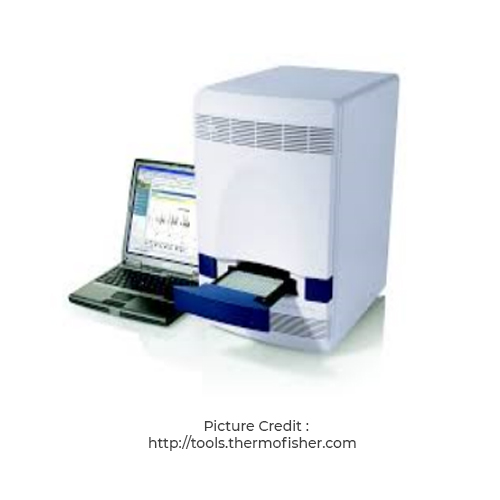
Applied Biosystem Veriti 96-well Thermal Cycler
- 6 independent temperature blocks that enable precise control over PCR optimization with the VeriFlex™ technology.
- 3x faster processor, making the easy-to-use color touch screen, more responsive and the time to boot-up, quicker..
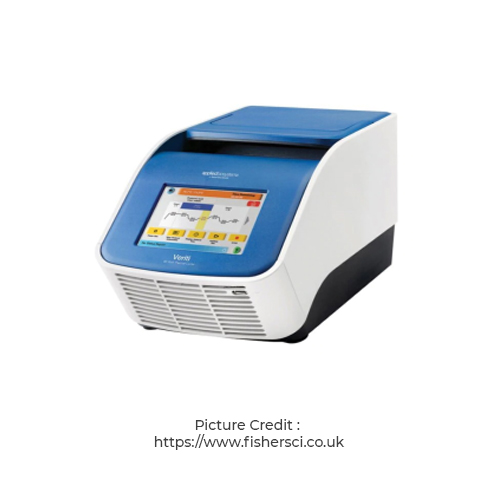
Thermo Scientific Nicolet iS5 FT-IR Spectrometer
- Uses the field-proven fourier-transform infrared spectroscopy (FTIR) for product assurance testing and raw materials analysis.
- Equips with the innovative identification and interpretation tool of OMNIC™ Specta™ software that creates a database of spectral data through is a unique combination of spectral identification tools, interpretation algorithms, and scientific documentation.
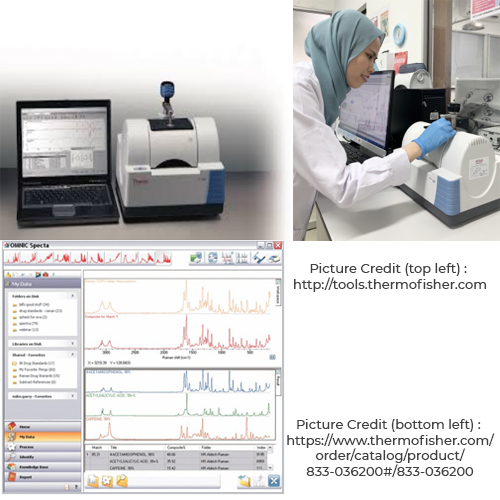
DAKO Autostainer Link 48
- A full batch of 48 slides to be processed in less than 3 hours with reliable, high accuracy results slide after slide.
- Minimal hands-on time with 42 onboard reagent positions to process entire patient cases more efficiently.
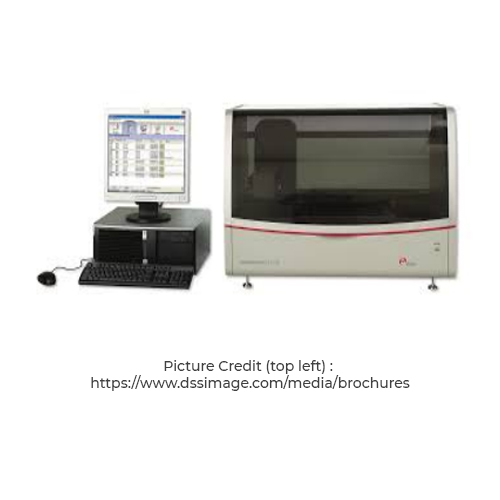
Mitogen Minicore Tissue Arrayer
- A semi-automatic tissue arrayer, featuring patented concentric punch technology and electronic stepper motors.
- Enables a complete traceability from tissue array design to tissue array.
- Captures images of the donor blocks with their ID automatically and records all operations into an Excel spreadsheet which compiles design and construction data as well as any comment entered by the operator.
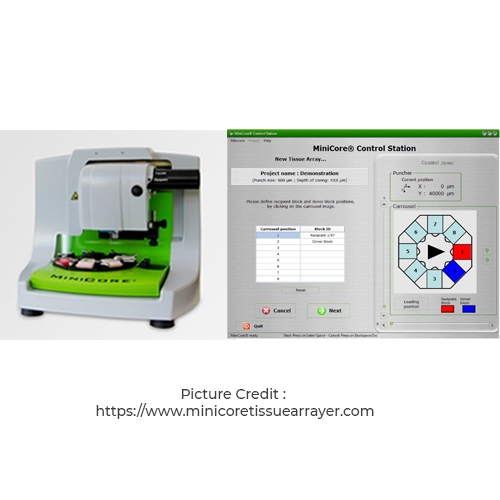
Merck Muse® Cell Analyzer
- A compact 3-parameter analysis, easy-to-use benchtop device, making flow cytometry easily accessible to anyone, any time.
- Uses patented, miniaturized fluorescent detection and microcapillary technology to deliver high accuracy, precise and quantitative cell analysis compared to other methods.

Carl Zeiss Axio Scope A1 Microscope
- Designed specifically to meet the most common optical imaging requirements of pathology, histology, cytology, microbiology, molecular biology, developmental biology or genetics research.
- Offers contrasting techniques in reflected- and transmitted-light microscopy.
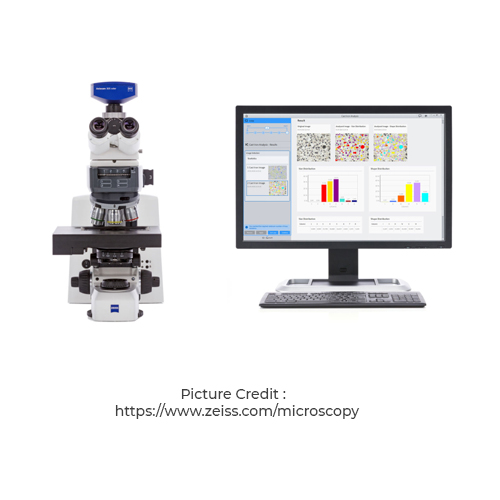
EVOS FL Digital Inverted Fluorescence Microscope
- Offers an all-in-one, fully integrated digital imaging system that includes an inverted microscope, high-resolution digital camera and an LCD display.
- Uses an innovative LED-based light cube system which integrates the illumination source, the light engine and the fluorescence filters into a single compact unit, removing all need for alignment or calibration by the user.
- Is supported by an embedded microprocessor that gives the user full control of image acquisition and management without need for an external computer.
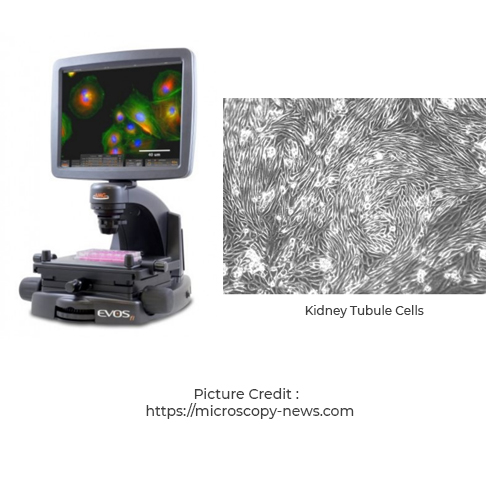
ChemiDoc™ XRS+ System with Image Lab™ Software
- A gel imaging system, includes darkroom, UV transilluminator, epi-white illumination, camera, power supply, cables, Image Lab software compatible with Windows or Mac OS
- Offers fast , accurate gel and blot imaging analysis with automated, hands-off routines.
- Provides comprehensive, automated, quantitative analysis of protein and DNA samples in seconds.
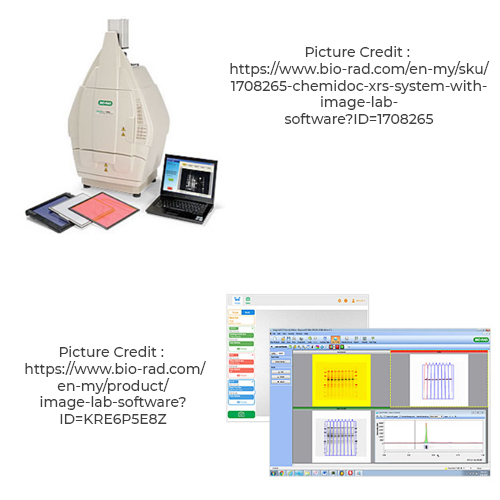
Promega Maxwell 16 DNA/RNA Extraction Instrument
- Offers automatic purification of high quality DNA & RNA from a range of sample types including blood,cell & tissue.
- Provides fast extraction, up to 16 samples and requires 30-45 minutes instrument run times.
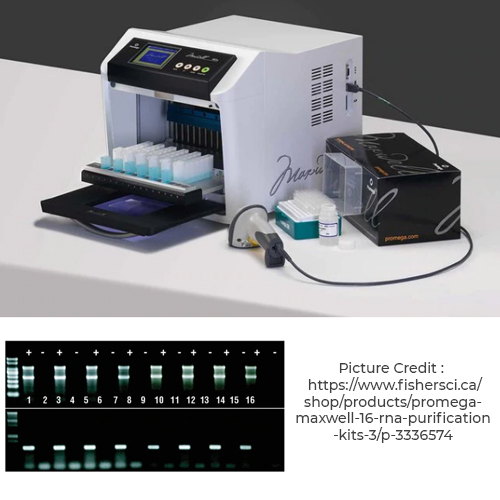
Semi-quantitative kidney stone analysis
Method:
Fourier-transform infrared (FTIR) spectrum analysis for stone composition.
Useful for :
Managing patients with recurrent kidney stone.
Available to all government and private hospitals nationwide.
Contact :
+6016-5538605
Email :
jasmine.lim@um.edu.my
UNIT ACTIVITIES
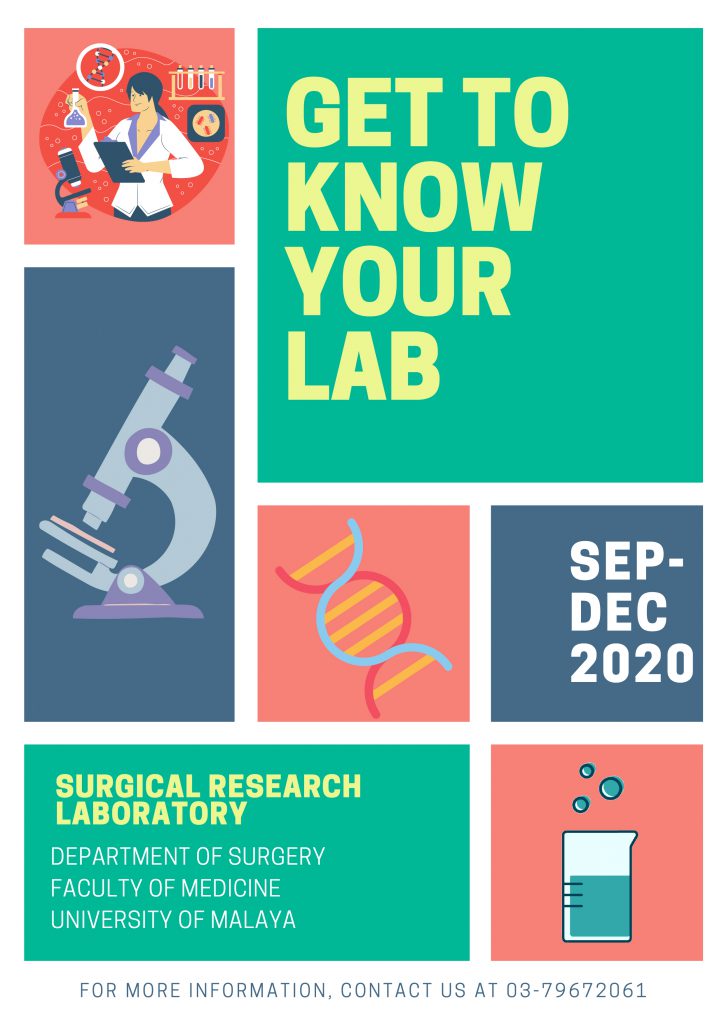
Surgical Research Lab Team

Research coordinator
ASSOC. PROFESSOR
DR VAIRAVAN NARAYANAN

Surgical Lab
Manager
DR JASMINE LIM

MEDICAL LAB TECHNOLOGIST
Nor Fazida Rasidi

MEDICAL LAB TECHNOLOGIST
Nur Naquiah Kamarrudin

Asst. Science
Officer
Nur Najihah Zulkifeli
